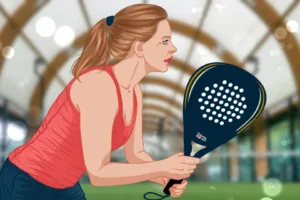A Midlife Awakening: How To Beat Your Blues in 5 Steps
Do you ever find yourself irritable for no reason sometimes? Do you feel a sense of emptiness since your children have grown and flown the nest? Do you ever look back at your life with a sense of melancholy at how the reality of your life hasn’t matched with the expectations you had of yourself when you were young? You’re not alone. Welcome to midlife!
To understand why this might be, we need only look at the pressures women find themselves juggling at this very sensitive period of life. Women may be widowed or have lost their parents. If parents are still alive, women might be responsible for aspects of their care and also be raising relatively young children. They may be divorced and feeling uncertain about what the future holds. The physical and emotional changes associated with the menopause can also have a significant impact on a woman’s mental health. For some women, the loss of fertility can be a particularly difficult part of this process, especially if the chance never came when a woman was younger.
Regret can be deeply embedded in a woman’s psyche especially if she made sacrifices to her own personal development in favour of bringing up children. The perceived invisibility that comes with an ageing face and body can also be hard to bear as we grow older and this can have a significant impact on our identity and self-esteem.
Managing the midlife blues
Is there anything we can do to recover quicker? The good news is YES WE CAN! The key to maintaining good mental health is staying active both physically and mentally. Mental Health Charity ‘Mind‘ recommends 5 ways to wellbeing which comprise of the following:
Connect
If you feel depressed, the likelihood is that you might feel a bit socially isolated too. We all have times when we just want to close the door and shut the world out but this can become a very unhealthy habit and can make us feel significantly worse over time. The general advice is to keep up with friends and family as much as possible, even if you don’t feel like it. Volunteering or joining a club or society can also be a good way of forging social connections and promote mental wellbeing when the empty next is too much to bear.
Be Active
You don’t need to hit the gym or pound the streets to feel the mental and physical benefits of physical activity. Walking, dancing, pilates, barre classes and swimming are all great low impact ways of protecting yourself from some of the health risks associated with entering the midlife phase. If you can bear to face the gym, weight training is thought to be particularly effective in increasing bone density and therefore protecting against the onset of osteoporosis.
Take notice
All too often our daily lives are so busy we stop taking notice of what is going on around us in the here and now. Finding a moment just to check in with yourself through the day is important if one of our problems is anxiety and that sense of feeling constantly on edge. Mindful moments can be a lovely way to do this and needn’t steal a huge amount of time from our busy lifestyles but could pay dividends in terms of our mental health. You could download one of the many mindfulness apps or use Youtube. Just a few minutes a day can be really beneficial. You could also just sit down calmly in a quiet space to enjoy a cup of tea without doing anything else such as checking your phone or answering emails etc. Notice the sensations inside you, allow your thoughts to come and go, breathe consciously using calm, comfortable breaths. Stay present, try not to engage in worry during this time and relax.
Learn
Continued learning and personal development are vital to our wellbeing as we hit midlife. This is where we can really grow. Is there something that you have always wanted to learn such as a foreign language, or how to plant up a beautiful border in your garden or to cha cha cha cha like a professional? Now is your time to shine! Not only do we benefit from the social aspect of learning but research has shown that learning new skills in later life can protect against age-related cognitive decline and maybe dementia-related illnesses in old age. You may even want to consider a career change and if you’ve been dissatisfied for a long time, it may be the perfect opportunity for you to start considering something new!
Give
One thing we definitely have an abundance of in midlife is knowledge and experience! Giving some of this back to the community and social projects can be incredibly enriching and may help to address some of the emptiness and lack of purpose some may feel once our families need for us some changes. Local charities and community projects are crying out for volunteers and just a few hours a week could go a long way to help us to feel useful and valued.
So now you know how you can help yourself negotiate the often perceived as a perilous phase of midlife. It is also important to remember that you are still beautiful, strong, empowering and valued. This is our time to reclaim our space in the world and make it count.
Deborah Cross is a fully qualified Cognitive Behavioural Therapist working both in NHS and private practice in Chester. Her focus is on using CBT to improve the symptoms of mild to moderate mental health problems such as depression, generalized anxiety disorder, panic disorder, health anxiety, social phobia, PTSD, complicated grief and general phobia. She also works with groups and organisations promoting mental health and speaks about surviving PTSD and baby loss.




